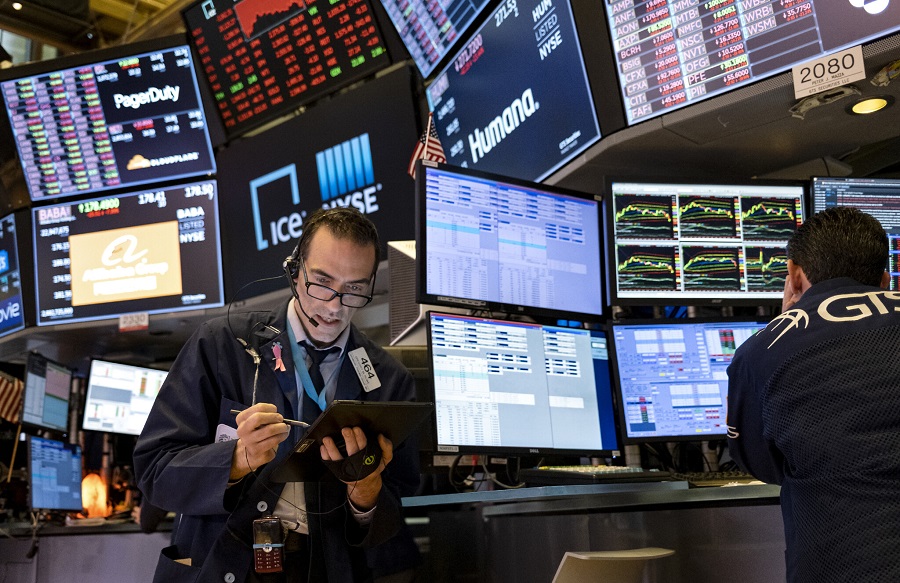U.S tech Stocks dropped massively at the last U.S trading session, adding to September’s woeful performance.
Top tech brands drifted lower, as investors fretted over uncertainty around the COVID-19 pandemic, and pending stimulus package awaited from the world’s largest economy.
What we know: Shares of Amazon and Netflix plunged by 4.1% and 4.2%, respectively, to lead Big Tech lower. Facebook dropped 2.3%. Alphabet closed 3.5% lower. Apple ended the day down 4.2%, and Microsoft dipped 3.3%.
READ: U.S stocks suffer biggest drop since June
The Dow Jones Industrial Average closed 525.05 points lower – 1.9%, at 26,763.13. Earlier in the session, the Dow was up 176 points. The S&P 500 dropped 2.4% to 3,236.92; and the Nasdaq Composite pulled back by 3%, to close at 10,632.99.
Stephen Innes, Chief Global Market Strategist at AxiCorp, in a detailed note to Nairametrics, gave deep insights on the bearish trend, in view of the tech-dominated stock index,
“Fading prospects for US fiscal stimulus, and the stepping up of mobility restrictions on concerns about the second wave of Covid-19, are smacking global stock markets again.
READ: OECD reduces global economic decline to 4.5% from earlier forecast of 6%
“The NASDAQ got hammered, after the US Department of Justice submitted a proposal for Congress to curb legal protections for tech companies, and compel them to take more responsibility for site content, following through President Donald Trump’s bid from earlier this year to crack down on tech giants,” Innes said.
He also spoke on the role of monetary stakeholders on the prevailing market condition, stating:
“The regulatory overhang is just such an imposing factor, and extremely difficult to the backburner
“Added to that, and in a not too subtle reminder, that we are still smack dab in the COVID-19 abyss, a procession of US Federal Reserve speakers voiced more concerns about the ongoing impasse on additional fiscal stimulus.”
Finally, you should note that global investors and stock traders are showing high rates of rotation out of tech, and into cyclical stocks in September.













